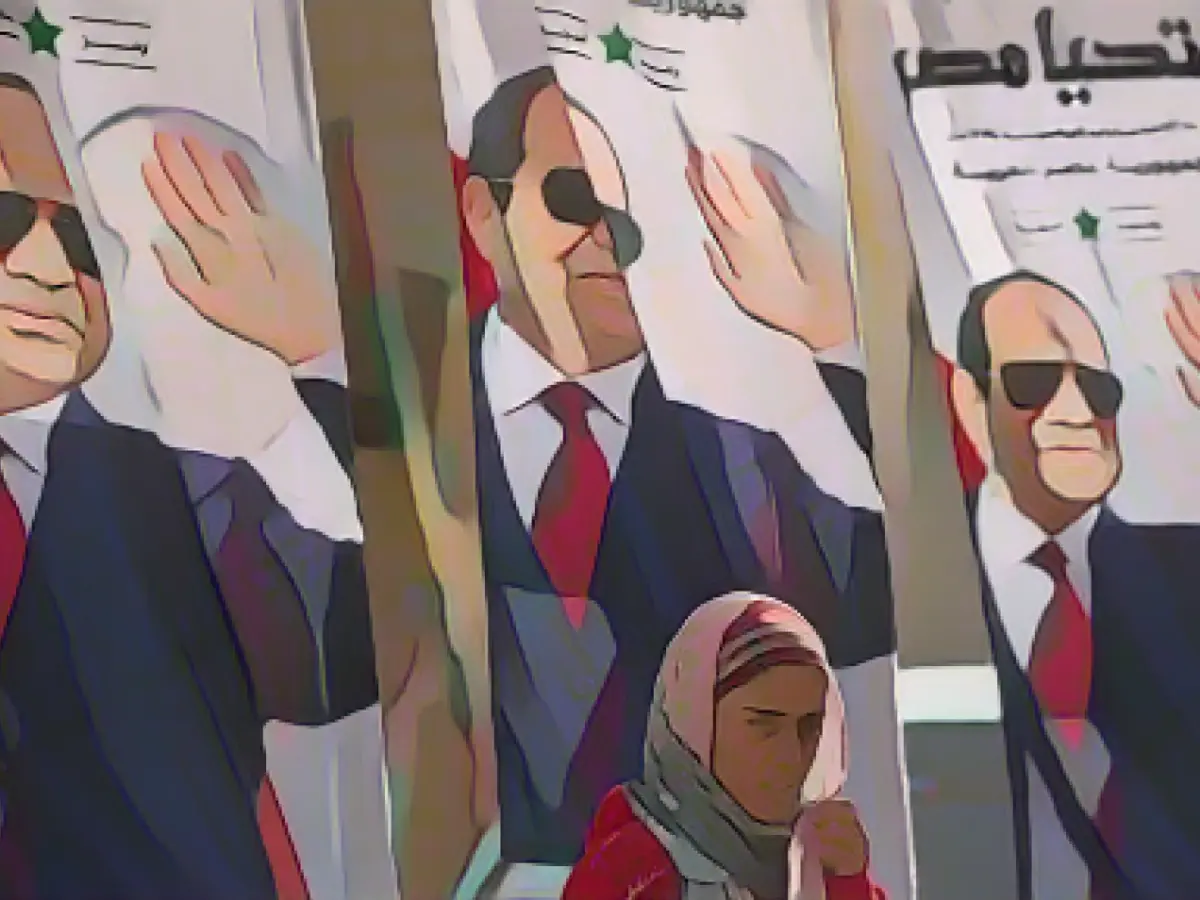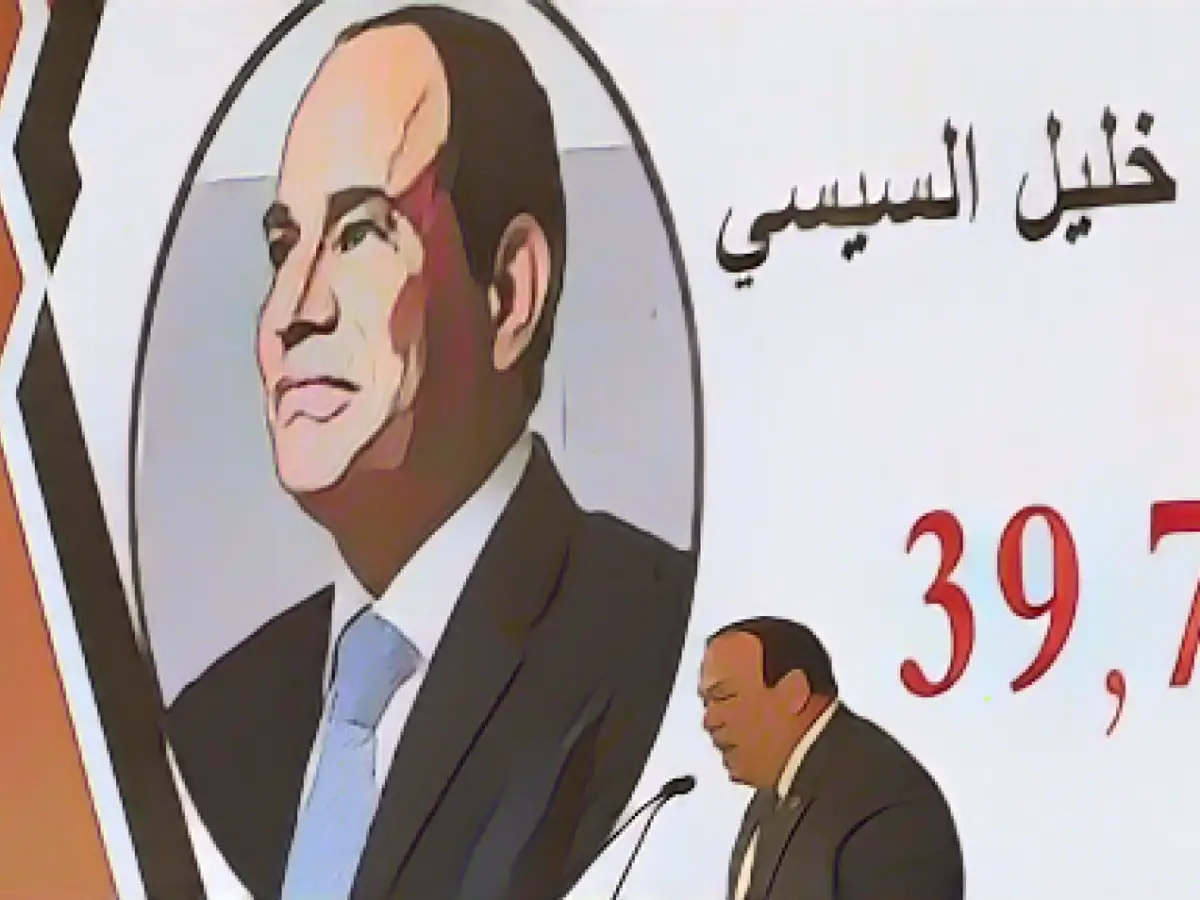Last Election Day in Egypt: Al-Sisi's Victory Amidst Rising Repression
As the sun rises over Cairo, Egyptians wait anxiously for the start of the presidential election. The incumbent, Abdel Fattah al-Sisi, is heavily favored to win, his portrait smiling down from billboards across the city. The election comes during a tense time, with uncertainty in Egypt and a serious conflict in the Gaza Strip threatening to spill over the border.
The atmosphere at the polling stations is relatively calm, with long lines forming early in the morning. Al-Sisi, wearing a dark suit and aviator glasses, makes his way to the polling station to cast his vote, shaking hands and joking with voters along the way. The election is being heralded as a sign of political pluralism and a democratic transformation by the State Information Service, though critics point to the continued atmosphere of fear and stifled opposition.
Al-Sisi, a former general who took power in 2013 following a military coup, has been in charge for a decade. Under his administration, the climate of fear has become the norm, with critics labeling it as a time of severe repression. Amnesty International has reported an increase in arrests, particularly before the election, and protests are effectively banned in the country.
This atmosphere of fear was also evident in the only serious rival candidate, Ahmed al-Tantaui. Despite initially being accepted into the election, Tantaui eventually withdrew after being unable to collect the necessary signatures. His supporters reported arrests and violence, which the authorities deny. Al-Tantaui and his staff have since been arrested, and he is currently awaiting trial for distributing ballots without the approval of the election authorities.
The election is also overshadowed by the ongoing conflict in Gaza. Egypt's government is concerned about the potential influx of Palestinians seeking protection from the bombardments, leading to increased tensions and security concerns. Al-Sisi is widely praised for his efforts to prevent the resettlement of Palestinians in Egypt and his humanitarian aid to Gaza.
Despite these challenges, Al-Sisi remains popular amongst many Egyptians, who see him as a strong leader who is ensuring stability in an uncertain time. This support is despite high unemployment and rapidly rising prices, with the inflation rate reaching 38 percent. Some critics argue that public money is being wasted on projects such as the construction of a new capital east of Cairo, fueling rumors of another currency devaluation and further plunging those in poverty into despair.
Yet, many Egyptians continue to support Al-Sisi, viewing him as a necessary stabilizing force in a volatile region. Others call for a more democratic transition, highlighting the lack of free and fair elections and the suppression of opposition.
Enrichment Insights
Human Rights Abuses in Egypt:
In recent years, Egypt has been criticized for its human rights record. Human rights organizations such as Amnesty International have documented numerous cases of detention, torture, and unfair trials, with many critics of the government being targeted for arrest and punishment. The Egyptian government has consistently denied these allegations, contending that it is maintaining law and order in the face of domestic and international threats.





